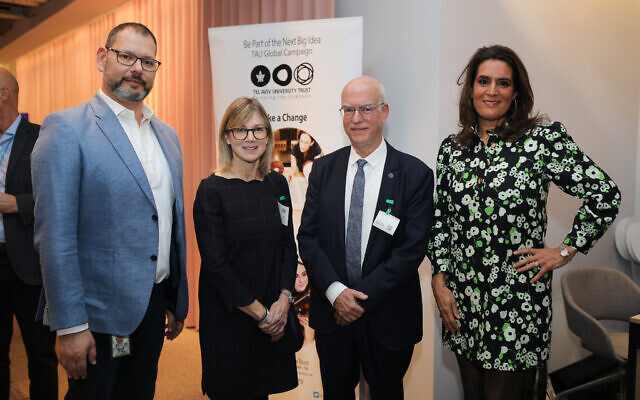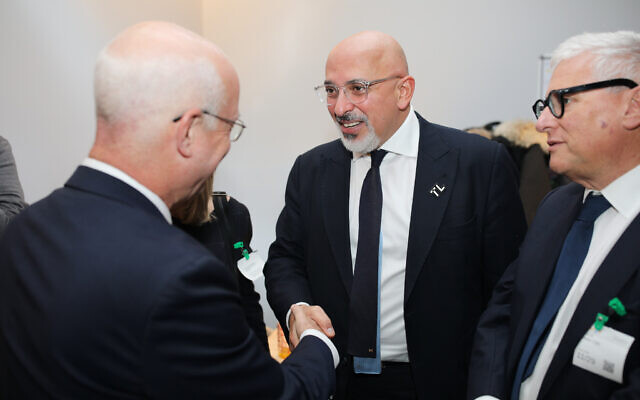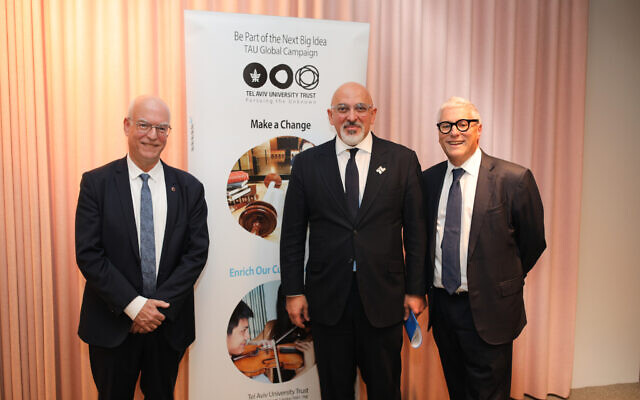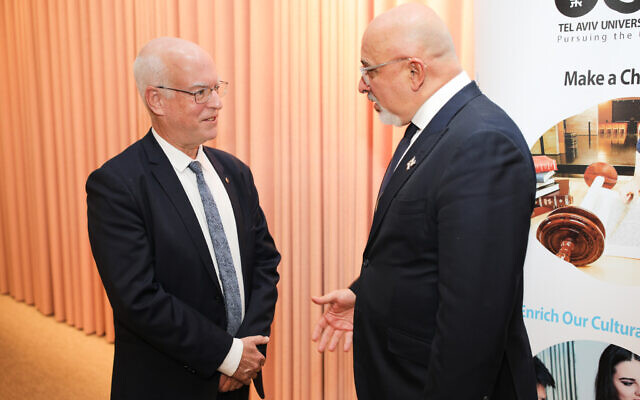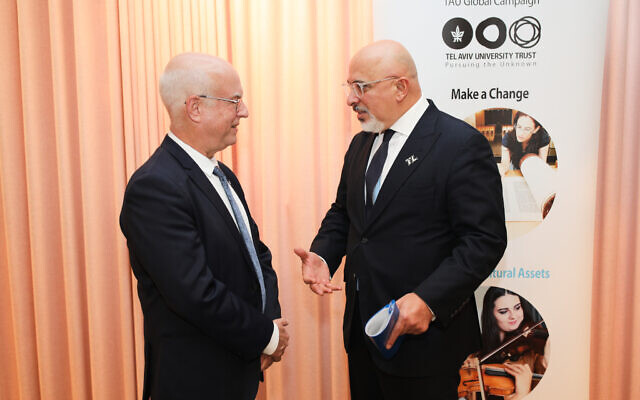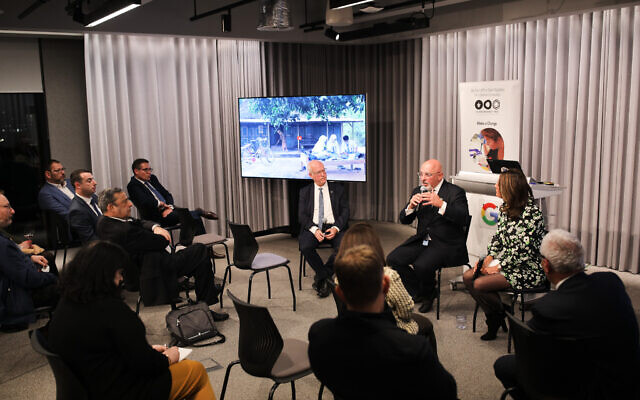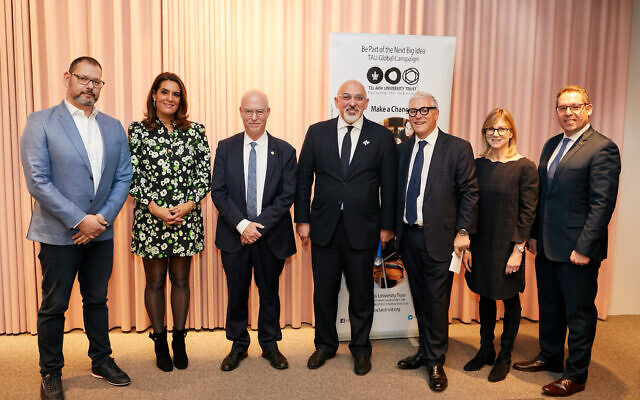Nadhim Zahawi: ‘Education should be the vaccine against antisemitism’
Education Secretary addressed Tel Aviv University Trust at Google's offices in London, speaking about his 'life-changing' visit to Auschwitz last month
Jenni Frazer is a freelance journalist
“Education should be the vaccine against antisemitism”, declared Education Secretary Nadhim Zahawi to the Tel Aviv University Trust, in what is thought to be the first time a government minister in that role has spoken at an Israeli university event.
Mr Zahawi was speaking together with Professor Ariel Porat, president of Tel Aviv University, as the two shared thoughts and experiences about the pre and post-Covid educational world. The event was held at Google’s headquarters in London and was moderated by broadcaster and journalist Samantha Simmonds.
The Education Secretary, previously in charge of vaccine rollout, paid heartfelt tribute to teachers, nurses and doctors, who had kept society going throughout the pandemic, particularly during lockdowns.
In a pointed reference at the beginning of his remarks, he said he wanted to thank the South African authorities for alerting the world to the presence of the Omicron variant of the Covid-19 virus. South Africa has complained bitterly that it is being penalised unfairly in the international arena — Mr Zahawi was extending an olive branch.
The Iraqi-born Kurd has become a warm friend of the Jewish community and spoke with sincerity and passion of his recent visit to Auschwitz, his first international visit as Education Secretary. He said: “I do think everyone must visit Auschwitz. It was life-changing for me. The Holocaust Education Trust set up part of my visit.The real, hard-to-describe part is Auschwitz 2, where Hitler decided to scale up, industrialise the extermination of the Jewish people. It’s beyond belief. No film reel will ever do it justice”.

He worried about antisemitism, Mr Zahawi said. “It’s not a long time ago when 7,000 people would go to work every single day to exterminate Jewish people, in the heart of Europe. I am really pleased that the IHRA definition of antisemitism has been adopted by so many universities — but I want them all to adopt it. It’s not just a document that you hang on a wall in a university president’s office. They have to think about how they deal with it, and how they make sure that university campuses are safe places for Jewish students, for Jewish lecturers, for the whole of the community. Education, in my view, is the vaccine against antisemitism, which is why I make it my mission to deal with this scourge, that I think is truly evil”.
After Mr Zahawi left the event to take part in a Commons vote, Professor Porat, a law professor, took centre stage, speaking about the differences technology — such as that being developed by Google — would make to student and academic lives. He hoped that some of the on-line methods of teaching which became a necessity during lockdowns would become a more standard part of education, leading to hybrid situations where some material was taught digitally, and some face-to-face.
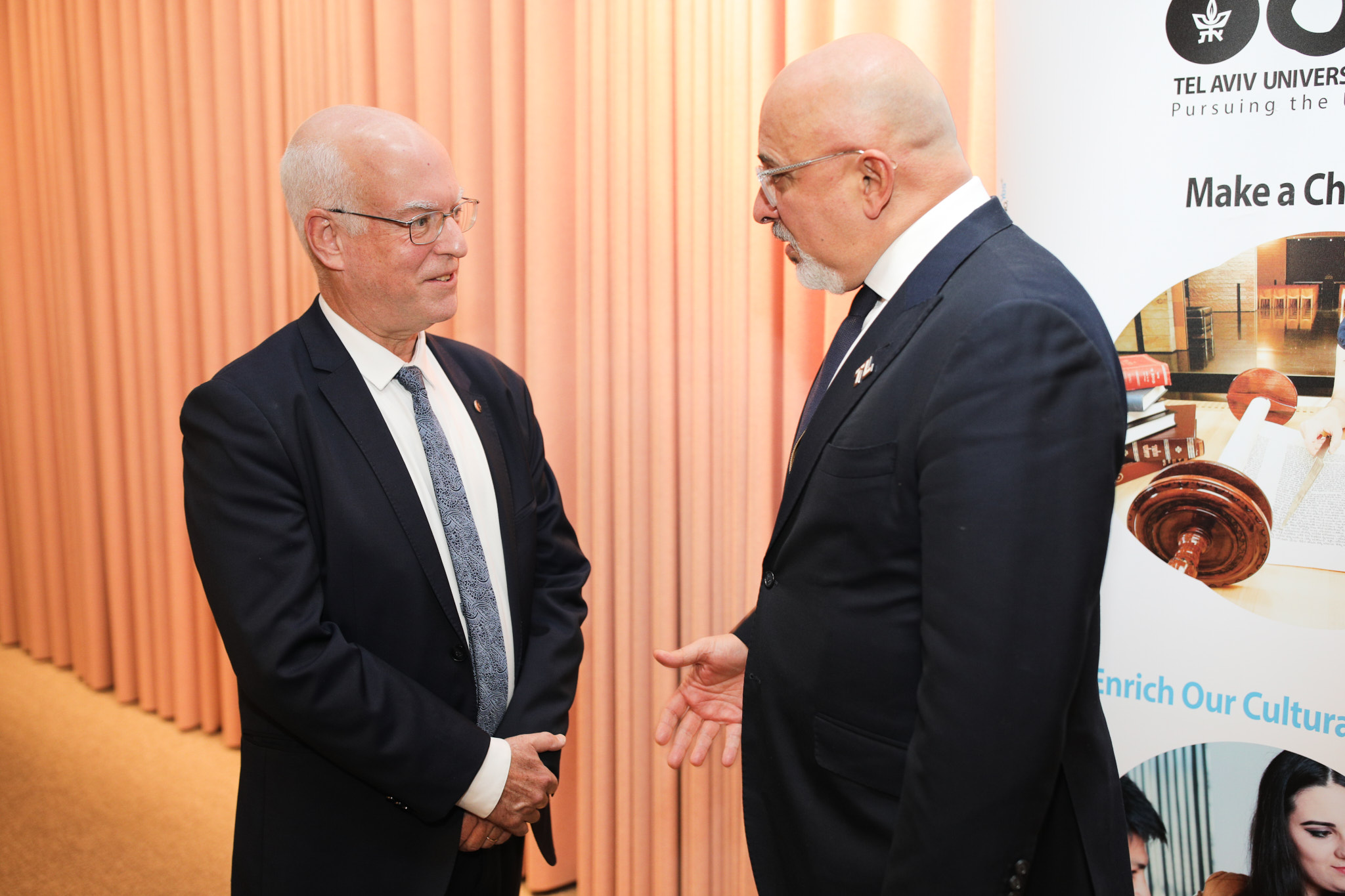
Asked about how Israeli students coped on foreign campuses, Professor Porat said that in some places Israelis comprised the largest number of foreign nationals. This is particularly the case in law in American universities, he said. But Israelis had been taken aback by the decision just two weeks ago of the editorial board of one of New York University’s law reviews to refuse to accept further papers from any academics or students from Israeli universities.
The TAU president said: “We hear more and more that Israeli students feel campuses are less safe. That was really the first time that I had seen such a concrete example. Of course I wrote to NYU, and they condemned it —but there is the issue of freedom of expression. Nevertheless there is now a written policy by one of NYU’s law reviews that they will not take papers from people from Israeli universities. So the question that we have to face is whether universities have a role to play in the BDS [boycott, divestment and sanctions] world? I am not sure that we are the right players here. It’s really very troubling and it’s also ridiculous: whatever you might think about the [Israeli] government, addressing your criticism to universities [does not work]”. He said that such actions had become stronger during the pandemic and believed that they were “a new edition of antisemitism”.

Thank you for helping to make Jewish News the leading source of news and opinion for the UK Jewish community. Today we're asking for your invaluable help to continue putting our community first in everything we do.
For as little as £5 a month you can help sustain the vital work we do in celebrating and standing up for Jewish life in Britain.
Jewish News holds our community together and keeps us connected. Like a synagogue, it’s where people turn to feel part of something bigger. It also proudly shows the rest of Britain the vibrancy and rich culture of modern Jewish life.
You can make a quick and easy one-off or monthly contribution of £5, £10, £20 or any other sum you’re comfortable with.
100% of your donation will help us continue celebrating our community, in all its dynamic diversity...
Engaging
Being a community platform means so much more than producing a newspaper and website. One of our proudest roles is media partnering with our invaluable charities to amplify the outstanding work they do to help us all.
Celebrating
There’s no shortage of oys in the world but Jewish News takes every opportunity to celebrate the joys too, through projects like Night of Heroes, 40 Under 40 and other compelling countdowns that make the community kvell with pride.
Pioneering
In the first collaboration between media outlets from different faiths, Jewish News worked with British Muslim TV and Church Times to produce a list of young activists leading the way on interfaith understanding.
Campaigning
Royal Mail issued a stamp honouring Holocaust hero Sir Nicholas Winton after a Jewish News campaign attracted more than 100,000 backers. Jewish Newsalso produces special editions of the paper highlighting pressing issues including mental health and Holocaust remembrance.
Easy access
In an age when news is readily accessible, Jewish News provides high-quality content free online and offline, removing any financial barriers to connecting people.
Voice of our community to wider society
The Jewish News team regularly appears on TV, radio and on the pages of the national press to comment on stories about the Jewish community. Easy access to the paper on the streets of London also means Jewish News provides an invaluable window into the community for the country at large.
We hope you agree all this is worth preserving.


